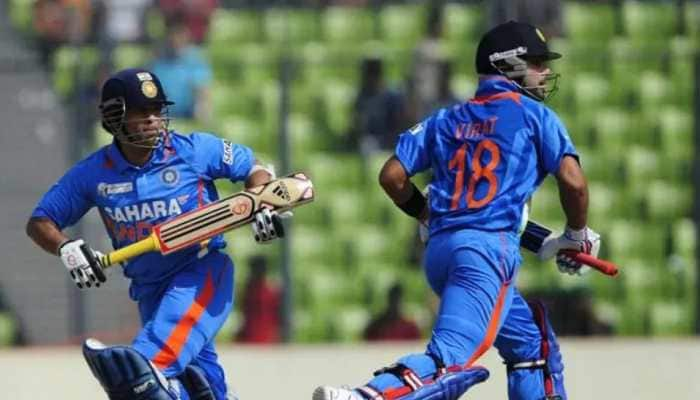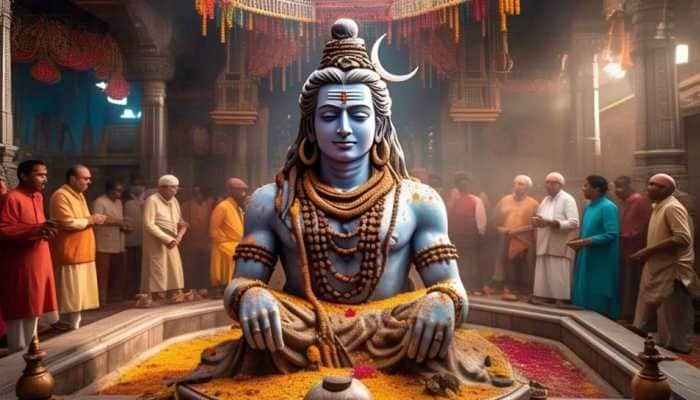Stand-off over powerful Afghan governor foreshadows bitter election fight
A stand-off between Afghan President Ashraf Ghani and Atta Mohammad Noor, the powerful provincial governor, is increasingly turning into a battle over next year`s presidential election.
Trending Photos
)
Mazar-i-Sharif: A stand-off between Afghan President Ashraf Ghani and Atta Mohammad Noor, the powerful provincial governor he is trying to remove from his northern stronghold, is increasingly turning into a battle over next year`s presidential election.
Noor, a leader in the Jamiat-i Islami party and governor of the strategic province of Balkh, is defying Ghani, denouncing the "weak, lazy and corrupt" Kabul government in daily rallies with thousands of supporters and warning the government against trying to remove him by force.
The deadlock, which has alarmed Western embassies and sparked fears of civil violence, has highlighted a fractious political climate that threatens to undermine recent battlefield successes from the sharp increase in U.S. air strikes last year.
Noor accuses Ghani of trying to remove a potential rival and divide Jamiat ahead of a presidential election likely to be shaped by the ethnic faultlines that dominate Afghan politics, notably between Pashtuns and Persian-speaking Tajiks.
"This is about the 2019 presidential election," he told Reuters in an interview at his office in the provincial capital Mazar-i Sharif, where his portrait adorns streets and buildings across the city. "They have no grassroots support among the people and they are afraid of public figures who do."
Ghani has not explained an announcement last month that he had accepted a letter of resignation from Noor, signed earlier last year during negotiations over a possible national role for the governor who has ruled Balkh for more than a decade.
But Noor says the letter, which has not been made public, was conditional on steps that Ghani has not taken and has refused to go.
Ghani has not said anything publicly about the stand-off. His spokesman did not answer calls seeking comment.
Noor, a former commander in the anti-Soviet Mujahiddin considered one of the richest men in Afghanistan, has faced repeated accusations of corruption, which he denies. In 2015 Human Rights Watch said there was "strong evidence that he controls and funds local militias implicated in serious abuse".
But Balkh, which sits on vital trade routes into central Asia, is also one of Afghanistan`s most stable and prosperous provinces, with a much smaller Taliban and Islamic State presence than in other northern regions.
Noor enjoys strong support, notably from a business community that has done well out of the lucrative transit trade through Hairatan, the border crossing into Uzbekistan that handles hundreds of millions of dollars worth of goods a year.
"People have been very unhappy about the problems between the president and the governor," said Khairuddin Mayel, who runs a large cooking oil and foods business. "The governor has been very successful and people don`t want this province to become like the others. They do not want to lose this governor."
As the stand-off in Balkh has continued it has become a national issue, with Noor now demanding wider concessions, including what Jamiat sees as proper implementation of the accord underpinning Ghani`s national unity government.
Like many of the political problems of the past three years, the crisis stems from the fraud-marred presidential election in 2014 that left no agreed winner.
Under a US-brokered deal, Ghani, an ethnic Pashtun, was appointed president while his rival Abdullah Abdullah, from Jamiat, was given the specially created post of chief executive.
Ever since, Jamiat supporters have bitterly resented what they see as Ghani`s betrayal of the deal and favouritism towards Pashtuns, traditionally the strongest group in Afghan politics.
While Noor has been angry with Ghani, he has also been incensed by Abdullah, his long-time party rival, whom he describes as a "snake".
"Jamiat will never trust Dr Abdullah," he said. "He has shown he is weak and a partner in the incompetence and crimes of the government."
Abdullah has confirmed he had approved the decision to oust the governor but has had little to say about Noor`s reaction.
The dispute has also highlighted the role of a clutch of regional leaders, of whom Noor is one of the most prominent, whose strong local support have made them difficult for the central government to control.
Over recent months, Ghani has sidelined several of them, forcing ethnic Uzbek vice-President Rashid Dostum into exile following a torture scandal.
He has also clashed with General Abdul Raziq, a powerful police commander whose successes against the Taliban in the southern province of Kandahar have given him a growing national profile.
In June, Noor joined Dostum, currently in Turkey, in forming a "Coalition for the Salvation of Afghanistan", uniting figures from the Tajik, Hazara and Uzbek communities. Pictures of the two, together with Hazara leader Mohammad Mohaqiq, are on prominent display in Mazar.
Noor said they, and other regional leaders, represented a reality that could not be ignored.
"We have powerful political parties, influential figures, those who have grassroots support among the people," said Noor. "They will remain in Afghanistan and will fight against terrorism as they fought in the past."
Stay informed on all the latest news, real-time breaking news updates, and follow all the important headlines in india news and world News on Zee News.
Live Tv







)
)
)
)
)
)
)
)
)
)
